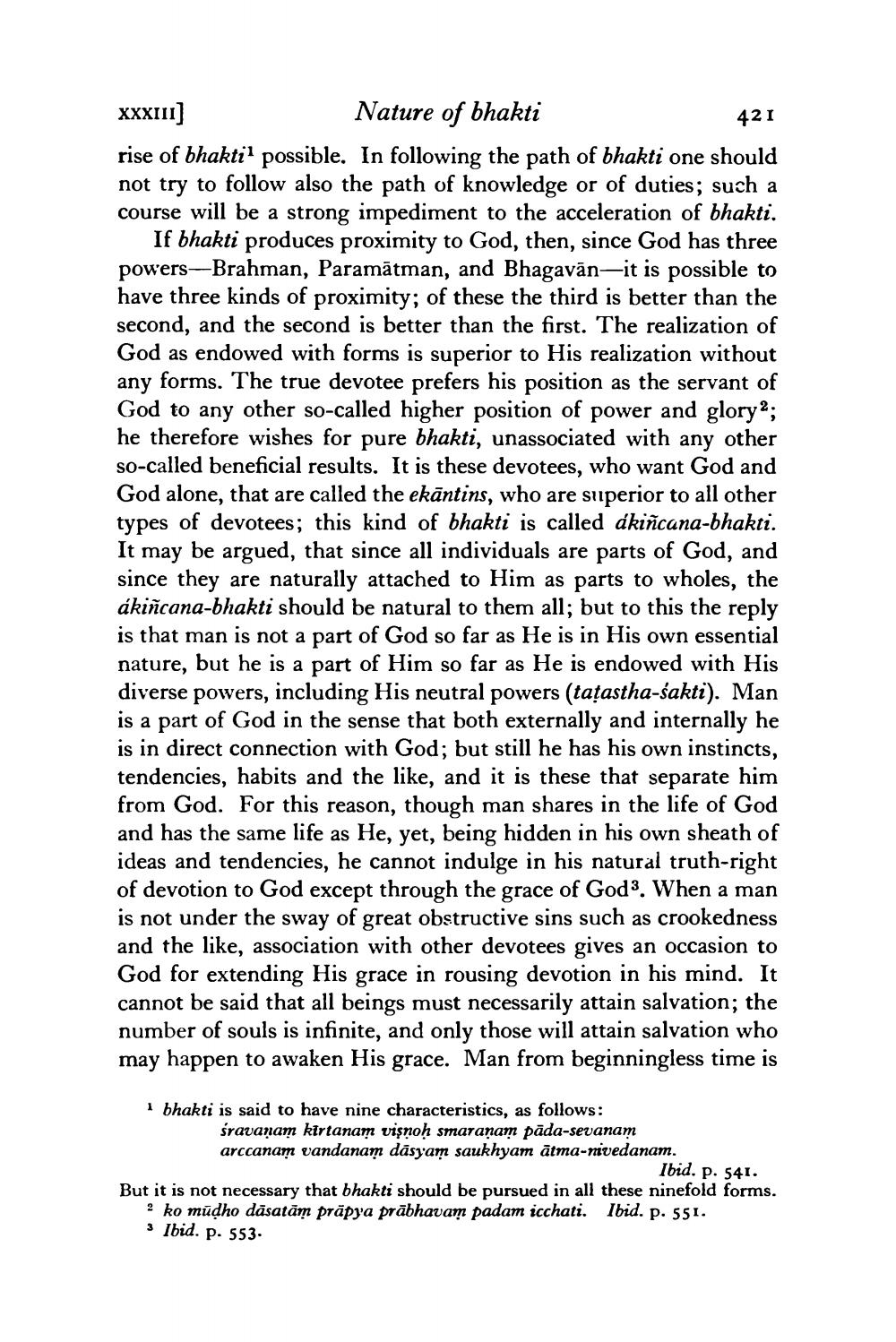________________
xxxın] Nature of bhakti
421 rise of bhakti' possible. In following the path of bhakti one should not try to follow also the path of knowledge or of duties; such a course will be a strong impediment to the acceleration of bhakti.
If bhakti produces proximity to God, then, since God has three powers-Brahman, Paramātman, and Bhagavān—it is possible to have three kinds of proximity; of these the third is better than the second, and the second is better than the first. The realization of God as endowed with forms is superior to His realization without any forms. The true devotee prefers his position as the servant of God to any other so-called higher position of power and glory2; he therefore wishes for pure bhakti, unassociated with any other so-called beneficial results. It is these devotees, who want God and God alone, that are called the ekāntins, who are superior to all other types of devotees; this kind of bhakti is called dkiñcana-bhakti. It may be argued, that since all individuals are parts of God, and since they are naturally attached to Him as parts to wholes, the ákiñcana-bhakti should be natural to them all; but to this the reply is that man is not a part of God so far as He is in His own essential nature, but he is a part of Him so far as He is endowed with His diverse powers, including His neutral powers (tațastha-sakti). Man is a part of God in the sense that both externally and internally he is in direct connection with God; but still he has his own instincts, tendencies, habits and the like, and it is these that separate him from God. For this reason, though man shares in the life of God and has the same life as He, yet, being hidden in his own sheath of ideas and tendencies, he cannot indulge in his natural truth-right of devotion to God except through the grace of God. When a man is not under the sway of great obstructive sins such as crookedness and the like, association with other devotees gives an occasion to God for extending His grace in rousing devotion in his mind. It cannot be said that all beings must necessarily attain salvation; the number of souls is infinite, and only those will attain salvation who may happen to awaken His grace. Man from beginningless time is
1 bhakti is said to have nine characteristics, as follows:
śravanam kirtanam vişnoh smaranam pāda-sevanam arccanam vandanam dāsyam saukhyam ātma-nivedanam.
Ibid. p. 541. But it is not necessary that bhakti should be pursued in all these ninefold forms.
2 ko mūdho dāsatām prāpya prābhavam padam icchati. Ibid. p. 551. 3 Ibid. p. 553.




